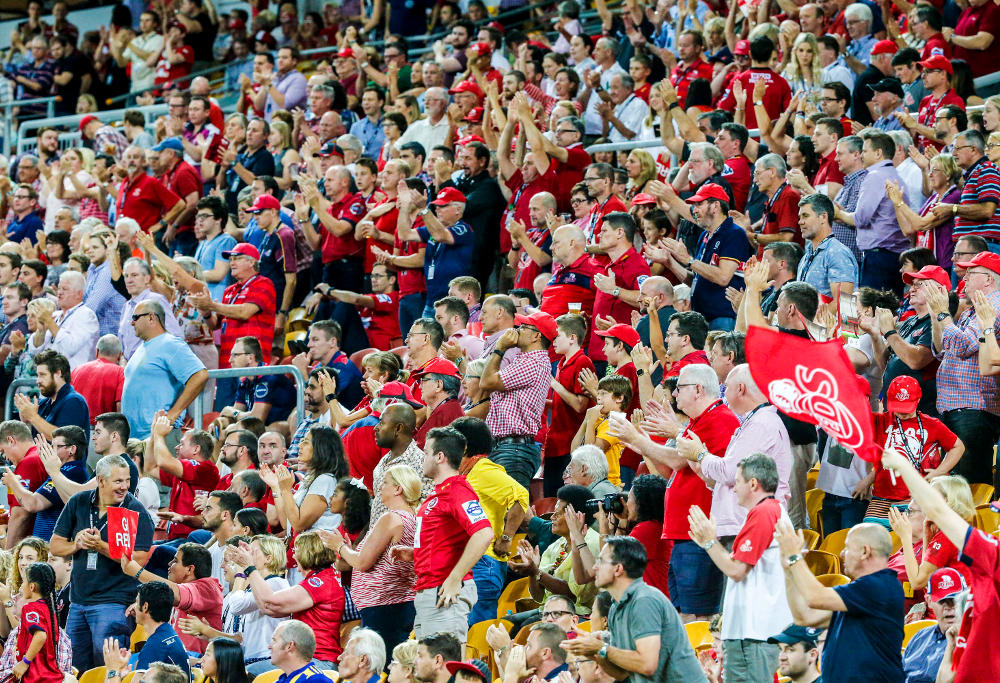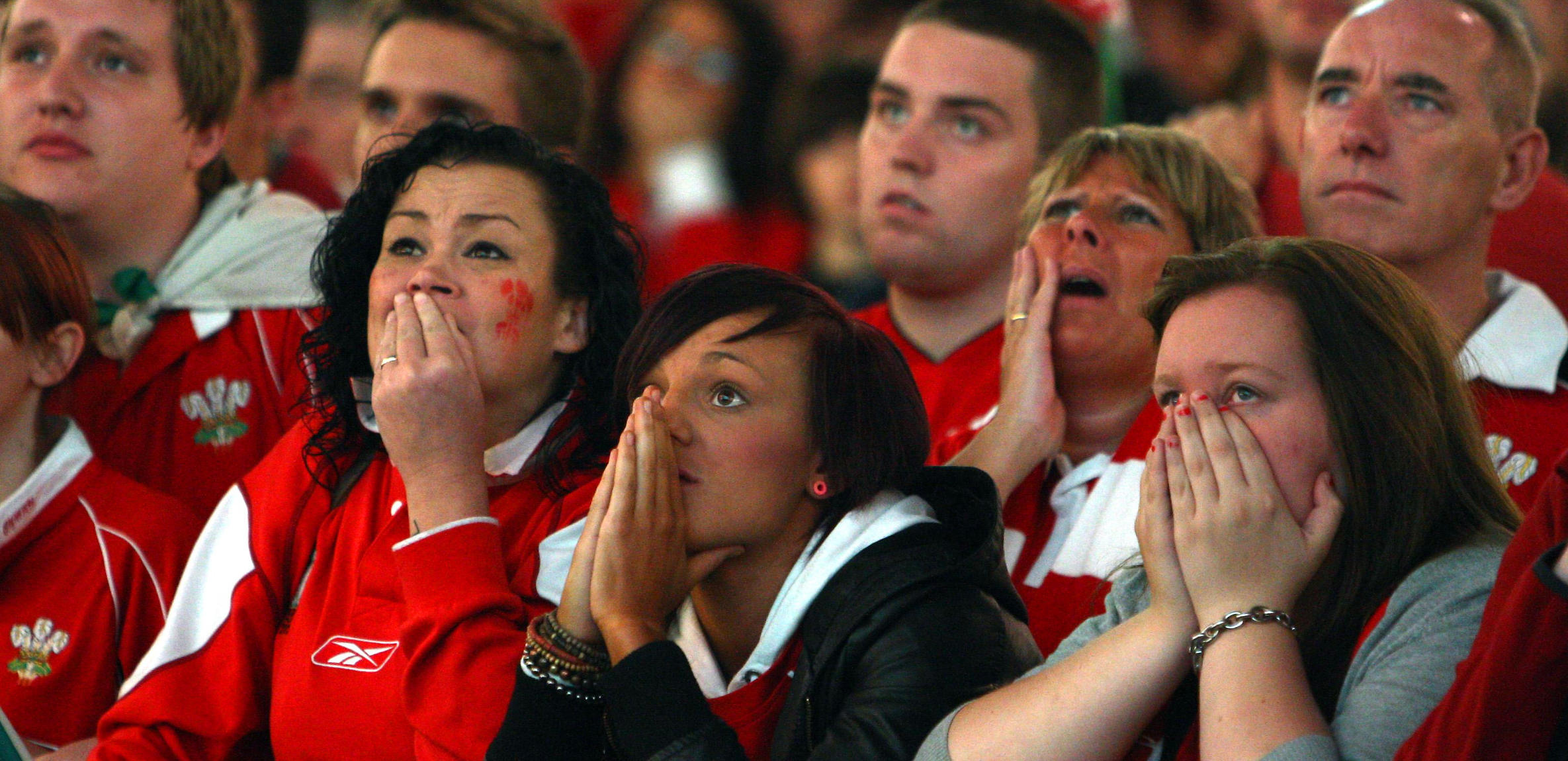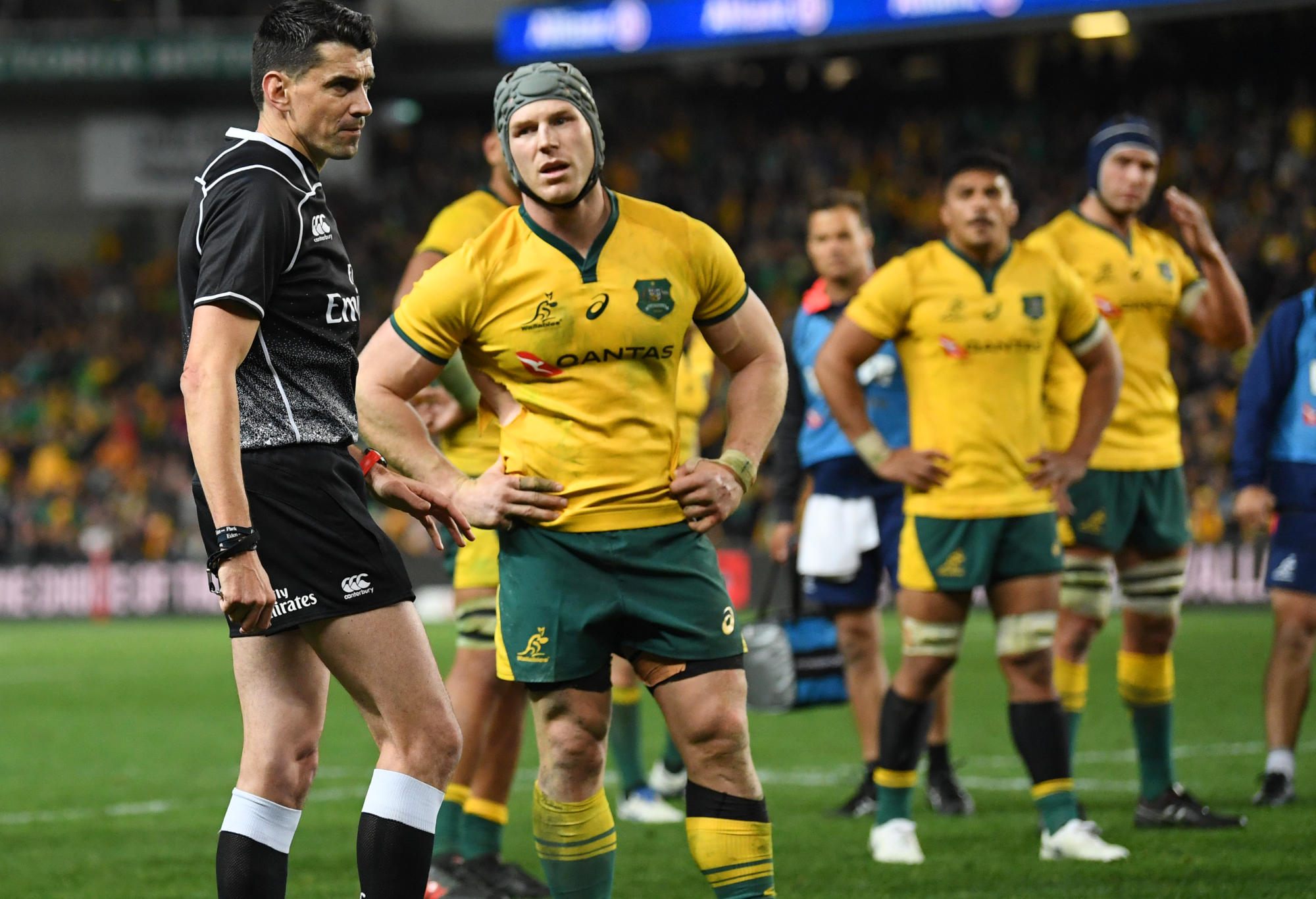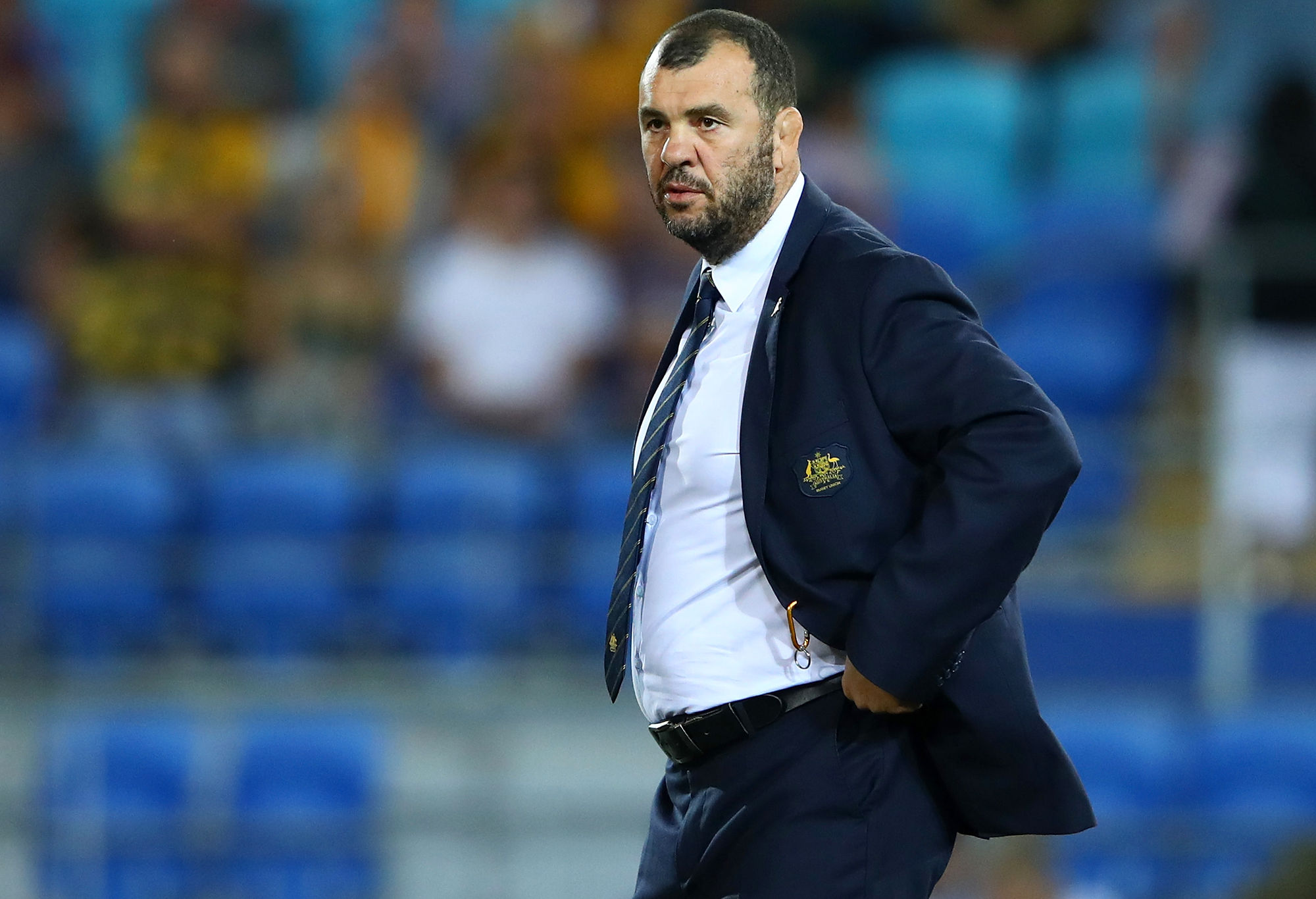Watching sport is a popular pastime.
A 2015 study found 60 per cent of Americans identified as being a sports enthusiast. In 2016 approximately five million people celebrated the Chicago Cubs win by marching through the streets.
In New Zealand around 1.7 million people watch rugby on TV. The All Blacks pull the biggest audience and are “watched by nearly 1.34 million New Zealanders (34.3%) slightly ahead of the Rugby World Cup (RWC) watched by 1.26 million New Zealanders (32.4%)”.
There are many reasons why we watch rugby, and surprisingly they’re not actually all about winning. A survey conducted in 2014 with 2255 respondents showed that most people watched sport due to the skill involved (63%), rivalry between teams (57%), teamwork (55%), athleticism (54%), strategy (51%), competition between individual players (42%), showing team pride (41%), social aspects – watching with friends (38%) – family traditions of watching (31%), speed of play (31%), camaraderie with others (28%) and other (28%).
Although the study was conducted in the USA, I don’t see why the results would change in a New Zealand context.
Many of us All Blacks fans are beneficiaries of the “cathartic healing” of sports fandom – supporting a team makes us feel better about our own lives. There’s a sense of bonding and “shared purpose”, which can be seen at the games, in pubs and on Facebook groups.
When the All Blacks win not only do we get bragging rights but it contributes to our sense of national identity, which has been intrinsically tied to rugby since the 1905 Originals tour. But unfortunately studies also show that losses can lead to “reckless driving, heart attacks and domestic violence”. In 2010 the NZ Police felt it necessary to prepare for the possibility of an All Blacks loss in the 2011 Rugby World Cup in their risk management preparations and did “extensive research into the effects of test matches on crime rates”.

(AAP Image/Glenn Hunt)
So what is fan fanaticism? According to the research, it includes three elements.
Sociological
The relationship between sport and society. Sport, primarily rugby, put New Zealand on the map. The prowess of the national team and their record of success has provided a platform for pride.
Psychological
Our self-esteem can benefit “from simple associations with successful others”. In addition, our need to belong is also satisfied through the camaraderie with those who support the same team.
According to Eric Simons, author of The Secret Lives of Sports Fans: The Science of Sports Obsession, “Fans get so much from identifying with a team, in ways even players don’t”, explaining that “athletes can be mercenaries, but the fan is permanent”.
However, an ugly side of the psychological aspect of fandom is what we saw transpire on the Gold Coast after the Wallabies loss to the Pumas – the concept that “you can get away with things as a fan in a crowd you’d never dream of trying in normal society”.
Physiological
A study in 1998 by Professor Paul Bernhardt showed that male spectators “experience the same testosterone surges as the players themselves – an increase of about 20 per cent by fans of winning teams, and a similar decrease in losing fans”. However it’s the minor neurons that are the cause of “the profound sense of vicarious connection to athletes”, which basically means our tendency to connect to a team or a certain player mean that their losses or wins become ours.

(David Jones/PA Images via Getty Images)
Professor Robert Cialdini coined the term BIRG (basking in reflected glory) to describe the pride fans feel when their team wins. I have certainly felt my share of BIRGing after an All Blacks match – that feeling you get that the universe is in alignment and that we’re on track for the Rugby World Cup.
It’s often thought that you can tell a lot about a person by the way they react to a loss, but I think it’s equally true for winning, and while I’ll fully admit some New Zealand fans come across as arrogant winners, this is not a Kiwi-only phenomenon. I think people need to take off their accusatory glasses and actually look at fans in their own backyards to see if they fit that description too.
Alternatively, CORFing (cutting off reflected failure), a term coined by researchers Charles Snyder, Maryanne Lassergard and Carol Ford, explains the tendency for fans “to distance themselves from their team after a defeat”. This is most visibly seen in those who leave a game halfway through when their team looks like they’re losing.
However, for most fans, regardless of their nationality or allegiance, it’s confirmation bias (also known as cognitive bias) which affects them most. Confirmation bias results in fans explaining defeats “by blaming outside factors, such as referees”. And it’s this phenomenon I’ve been reading in the comments at the end of New Zealand Herald or Stuff articles or on posts on many rugby Facebook groups.
To me this is the ugliest side of fandom and one I believe comes from either plastic fandom, those too young to have experienced the dark years or perhaps just those who are particularly poor sports.
I guess it’s only human nature to want to blame something or someone. It’s a common trait in many people, but NZ rugby fans are certainly not alone when it comes to doing this. But turning on a player after one poor performance is an incredibly fickle way to support a team. The blame game belongs on a playground, not in professional sport.

(AAP Image/David Moir)
When coaches start blaming referees for a loss, what kind of example are they setting? Basically they’re avoiding responsibility and disrespecting the opposition.
Michael Cheika is a coach who regularly plays the blame game; Steve Hansen is not. After his infamous “cheats” outburst in the 2017 loss to England, Brett Harris described Cheika’s “incandescent rage against the refereeing” as “an unpleasant, but recurring, feature of the game”.
Then this year, after the Wallabies loss to Ireland in the first test, Cheika invited the referees to the post-match media conference to “explain themselves to the media”.
Compare that to Hansen’s attitude. When asked about Nigel Owens not hearing his assistant referee saying two Boks players were offside, Hansen replied, “There’s no point me bitching about that. The game’s about taking your opportunities and making sure the opposition don’t and we didn’t do that tonight”. The refreshing lack of blame is setting a much better example.
Fans blaming players also defies logic. There are 23 players in a match-day rugby team. Each and every one of those players has a job to do, whether it be kicking goals, scoring tries or making tackles. The expectation that each of those 23 players is going to play without making a mistake is ridiculous. How many of us never make a mistake in our jobs?

(Cameron Spencer/Getty Images)
I know they’re paid well for the job they’re employed to do, but that really is a moot point. The actual point is: everybody has an off day every so often. Another point it: they’re not robots; they’re human, and sometimes their confidence is shaky or their nerves get the better of them.
Beauden Barrett has come under more than his fair share of criticism since last week’s game, and I think without the hoard of keyboard warriors telling him he realises he had an off night. Sean Fitzpatrick once said that All Blacks remember losses more than wins, and I think that will be the case with the Westpac Stadium loss. But was Barrett’s kicking the only thing that cost the match? Because I saw a lot of mishandling and a lot of poor decision making, and not all of that can be placed on Barrett’s shoulders.
As Avan Lee, chief executive of the Hurricanes, says, “You get a lot of plaudits when things go well but, as soon as they don’t, it’s pretty tough”. Considering he’s been the back-to-back World Rugby player of the year, Lee added “it’s remarkable how Barrett has somehow fashioned a reputation as unreliable and disinterested”.
I’ve seen him called “useless”, “beyond poor” and the “worst AB kicker of all time”. I’ve also read people once again blaming him for losing the second test against the British and Irisih Lions, with no acknowledgement of the red-card incident. So in four days he went from hero to zero because he had a poor night with the boot. The four tries he scored against the Wallabies at Eden Park have disappeared into the dark recesses of some fans’ minds.
When a team loses, the coaching staff and players share the blame (as opposed to blaming) and have to live with the result. Sometimes a team just loses. Sometimes the opposition plays out of their skin. Sometimes things just don’t click into place. But whatever is behind the loss, any loss, the fact of the matter is that we’re supposed to be ‘supporters’ – in other words, we’re meant to support our team. And support shouldn’t rely on the score
































































































